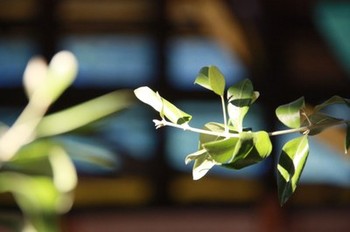Invoking prayers for creation, eco-justice and peace with the earth, “Time for Creation” ― a Christian global event ― is observed worldwide by many member churches of the World Council of Churches (WCC).
This year, the Council has invited a focus on the theme “pilgrimage of justice and peace” ― a call issued by the WCC 10th Assembly in Busan, Republic of Korea in 2013.
Celebrated from Sept. 1-Oct. 4 each year, Time for Creation starts on the first day of the liturgical year for Orthodox churches, concluding on the feast day of Francis of Assisi, patron saint of animals and the environment, in Catholic and other Christian traditions.
Sept. 1 was proclaimed as a day of prayer for the environment by the late Ecumenical Patriarch Dimitrios I in 1989.
In 2008, the WCC Central Committee affirmed the invitation “to observe through prayers and action a special time for creation, its care and stewardship.”
An initiative relevant to the Time for Creation theme this year is the Interfaith Summit on Climate Change in New York. To be held Sept. 21-22, the summit will bring together religious leaders before the Climate Summit called by United Nations Secretary General Ban Ki-moon, advocating concrete actions in addressing climate change.
As part of Time for Creation, a prayer service was held at the Saint Pierre Cathedral in Geneva, Switzerland. Led by the Rev. Emmanuel Rolland and the Rev. Jacques Matthey, the service was inspired by Revelation 2, highlighting the significance of creation.
Kurt Aufdereggen from Oeku, an ecumenical organization working for environmental issues in Switzerland, offered recommendations on how churches and communities can celebrate Time for Creation. This year, Oeku is addressing the theme “A shared habitat: urban environment.”
Celebrations for Time for Creation have featured different expressions around the world. In South Africa and Australia, for instance, it was called “Season of Creation” focusing this year on the “Spirit in Creation.”
In Scotland, eco-congregations focused on the theme “God, whose farm is all creation,” reflecting on the UN 2014 International Year of Family Farming. Materials to support worship leaders were produced by eco-congregations in Scotland, using a lectionary produced by the Church of England Diocese of Bath and Wells.
“It is heartening to see how more and more churches are organizing activities around Time for Creation,” said Guillermo Kerber, the WCC’s program executive on Care for Creation and Climate Justice.
“I participated in the Time for Creation service at Saint Pierre Cathedral and ecumenical gatherings organized by the Holy Trinity Anglican Church in Geneva. It is moving to see how Christians have expressed concern for the earth through their spiritual lives,” said Kerber.
In his Encyclical on the beginning of the ecclesiastical new year, Sept. 1, Bartholomew I, the Ecumenical Patriarch of Constantinople, affirmed the churches’ concern for the protection of the environment.
He invited Christians to “prayer and supplication for the preservation of God’s creation, which has been inherited by us as our environment” and encouraged Christians to denounce “the unlimited and insatiable exploitation of the natural resources of creation, which constitutes the primary cause of the destruction of the natural environment.”

